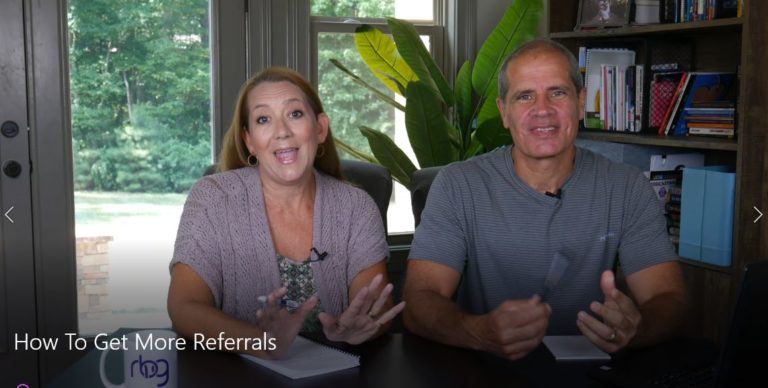Clearing the Path to Do Social Good

Have you considered doing social good through your small business?
Investopedia defines social good as “something that benefits the largest number of people in the largest possible way, such as clean air, clean water, healthcare, and literacy.” You may also see this referred to as making a difference, giving back, social responsibility, and others.
However, if you find yourself saying, “I want to get started but…” or “I want to do more but…” you may be hesitating due to common misconceptions about social responsibility. Don’t let the following misconceptions prevent you from doing social good.
Misconception #1: A Business Can’t Be Both Profitable and Do Good.

This common myth typically stems from two causes – money mindsets and misconceptions about business structures.
First, some people may have past experiences that have resulted in negative money mindsets, such as believing that making money is evil, nothing good comes from money, all businesses are corrupt, and capitalism is bad, among other possibilities. These mindsets cause them to immediately reject the idea of doing social good while also being profitable. If you feel this way, you may need to discover the origin of your money mindsets and figure out how to overcome them. The mindsets may be so strong that you need to work with a coach to overcome them.
Second, there is a misconception that only nonprofit organizations, social enterprises, or social entrepreneurs can be socially responsible. For these business types, a social goal is established first, and then they decide how the business can make or raise money to support this goal. A for-profit business selects a product or service first and then has the choice to be socially responsible if it wants to, in addition to its primary purpose. The difference is where the emphasis sits for social good.
Alternative Truth: Any type of business can be both profitable and do social good, if they choose to.
Misconception #2: Social Responsibility is Exclusively for Corporations
Social responsibility, in general, is the belief that a business can be profitable and contribute to the greater good or social good beyond its standard business operations. The concept has existed since the late 1800s and started with early industrialists and philanthropists. In the early and mid-20th century, larger businesses and corporations with the resources to implement programs embraced social responsibility.

The first definition of “Corporate Social Responsibility” was attributed to Howard Bowen in 1953. As more corporations continued to embrace social responsibility, “Corporate Social Responsibility” (CSR) became the standard term, often replacing “Social Responsibility” entirely.
However, the concept of doing social good through a business beyond what is part of their operations is not exclusive to corporations. CRS has simply become the most common term, leading to the misconception that it ONLY applies to corporations.
Alternative Truth: Businesses of any size can be socially responsible.
Misconception #3: Social Responsibility is Not Worth It for Small Business Owners
Deciding if something is “worth it” for a business is a uniquely personal decision for the business owner. You need to decide if the value or benefits of doing something outweigh the effort it takes to do so.
This applies to social responsibility as well. You need to decide if you want to do social good and if you will benefit enough from the effort to make it worthwhile. That benefit may simply be fulfilling a personal desire to do good, or it may involve considering how the action may benefit your business (and there are dozens of studies to prove that it can – watch for a future article with more information about the benefits).
Alternative Truth: Social responsibility can be worth it for small business owners who are motivated to do social good and make efforts to ensure the benefits outweigh the money, time, or resources.
Misconception #4: Social Responsibility Doesn’t Apply to My Small Business

“Social responsibility doesn’t apply” is a broad version of this statement. More specifically I hear comments such as: “I’d love to volunteer, but I don’t have time” and “I’d like to donate, but I don’t have the cash flow.” These typically follow the same pattern: I’d like to [insert an action they are familiar with], but I can’t because [insert an objection to that action]. This belief stems from a lack of understanding of how one can “do social good.” If you want to do social good, there is a way to do so that fits your available time, money, or resources.
However, not everyone may WANT to do more social good outside their business, and they use this myth as an excuse. As a small business owner, you already do good in the world by providing necessary goods and services, employing local staff, and contributing to the local economy. You may not have the time, energy, or desire to do “more,” and that’s okay.
Alternative Truth: Social responsibility can apply to any business. Just please, if you aren’t interested, don’t use this as an excuse and spread this myth to others.
Misconception #5: Social Responsibility is Too Hard for Small Business Owners
Searching for small business social responsibility or similar phrases will primarily result in generic articles introducing the concept or providing general tips or benefits. Or you will find recommendations to implement CSR practices, which are typically large and complex programs that rarely apply to small businesses. It’s very tough to find resources designed exclusively for small businesses, which causes many people to immediately label it too hard.
Or, you may know a small business owner who embraced social responsibility but made it more complicated than it needed to be and then shared their thoughts with others.
Alternative Truth: With the right resources and approach, social responsibility does not need to be hard for small business owners.
Misconception #6: Small Efforts Won’t Make a Difference
It’s common for small business owners to consider social good but disregard it because they don’t think it will make enough of a difference. However, it’s important to pause and consider the following three aspects:

1. Individual Impact: Your seemingly “small effort” may directly and positively influence one person’s life, a significance that should never be downplayed. Plus, the ripple effect of even a modest contribution may create meaningful and lasting change that you aren’t aware of.
2. Network Amplification: A study has shown that even the most introverted person is estimated to influence 10,000 people in their lifetime. As a small business owner, your impact extends far beyond that through your employees, customers, community, and broader network. Your actions can create a positive domino effect, influencing more lives than you might realize.
3. Collective Power: Dismissing your efforts as too small overlooks the collective strength of small businesses. There are 32.5 million small businesses in the United States alone, comprising 99.9% of all businesses and 46.8% of the workforce. When you consider your actions as part of an overall group of small business owners or a local networking group or association, such as NBG, your actions will no longer feel small.
Alternative Truth: Doing social good through small businesses does make a difference.
Misconception #7: It’s Wrong to Benefit from Social Good
Some small business owners might question the ethics of reaping rewards from social responsibility. Or worry that blending business interests with social good might seem opportunistic.

For example, if you are working with a nonprofit, it shouldn’t be about using that relationship for selfish gains but instead creating a mutually beneficial relationship to help make a more significant impact for them while also contributing to your business growth. After all, if social good helps grow your business, you can then do more social good.
Alternative Truth: It’s perfectly acceptable for your small business to benefit from doing good if you maintain an ethical and transparent approach.
Misconception #8: Talking About Social Good is Bragging
And finally, many small business owners worry that talking about their social good will come off as bragging. However, bragging is not what you say; it’s how you say it.
Communicating your efforts respectfully and gratefully is an opportunity to inspire others, increase awareness of any groups you support, and much more. It’s also a chance to express gratitude to your customers and employees who make your positive contributions possible. Without their support, your small business wouldn’t be able to do the good it does.
Alternative Truth: It’s perfectly okay to share your social responsibility efforts as long as it’s done respectfully.
Conclusion: Embrace the New Truths
In briefly considering these misconceptions, it’s clear – small businesses can do social good. If you have hesitated to get started or do more, it’s time to let go of the myths and embrace the new truths. What are you waiting for?
If something is still stopping you, besides simply finding time, catch me at an upcoming huddle or signature event, and let’s dig into your objections.
If you want an easy way to get started, consider exploring the NBG G.I.V.E. Initiative to support local nonprofits in Charlotte. This is a tangible way to make a difference in your community, continue networking with like-minded business owners, and enhance your business.









Such a wonderful read Tanya. You made some excellent points for all of us to remember as we contemplate whether or not to get involved in a nonprofit activity. It is never wrong to do good!!! Terry
Thanks Terry!
#7 is perfect for those that already volunteer but haven’t discovered how to scale it alongside their business. Transparency can be a superpower in this space.
Nice job Tanya. Love the call to Embrace the New Truths!